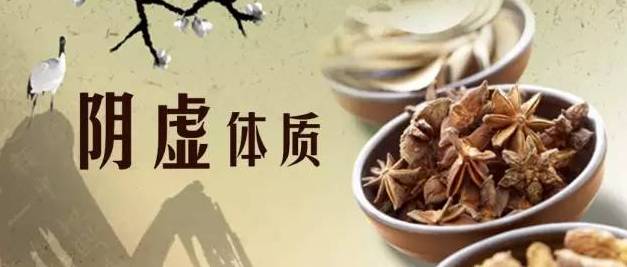
Yin deficiency constitution refers to a type of constitution that often has empty heat. Due to the depletion of essence, blood, and body fluids, Yin cannot control Yang, leading to an excess of Yang heat. This results in a state of hyperactivity in the body, reducing adaptability and making the body prone to aging. Clinically, it often manifests as thin physique, flushed face, five hearts heat (palms and soles feeling hot), dry mouth and throat, night sweats and seminal emissions, irritability and poor sleep, red tongue with little coating, and thin rapid pulse. Individuals with this constitution are often intolerant of spring and summer and prefer cold drinks.
Are you of Yin deficiency constitution? Let’s self-assess!
1. Self-Perception
The most obvious self-awareness of Yin deficiency constitution is heat, often feeling heat in the heart area or burning sensations. They tend to hold cool objects in their hands and prefer to keep their hands and feet outside the covers while sleeping, a condition known in TCM as “five hearts heat”. Sweating episodes, known as “night sweats”, occur upon falling asleep but stop upon waking. Individuals with Yin deficiency often experience dry mouth and throat, frequently drinking water, and prefer cool water over warm.
2. Personality Traits
Individuals with Yin deficiency constitution are generally more extroverted, easily excited, and agitated, often speaking loudly and quickly. They are usually enthusiastic, lively, and restless, enjoying organizing activities. Those with severe Yin deficiency symptoms may easily become anxious and irritable when faced with unpleasant situations, often lacking calmness in problem-solving.
3. Physical Characteristics
Physically, individuals with Yin deficiency are often slender and appear quite fit.
4. Facial Color Characteristics
People with Yin deficiency typically have a reddish complexion, but this redness is not the healthy, natural kind; rather, it appears as two particularly red cheekbones, resembling makeup. This phenomenon of false appearance is referred to in TCM as “facial makeup”. Their tongues are often bright red or pale red with thin white or no coating.
5. Bowel and Urinary Manifestations
Due to insufficient Yin fluids, individuals with Yin deficiency often experience dry stools and difficulty in bowel movements. Urination is often yellow and scanty.
How should individuals with Yin deficiency constitution maintain their health?
1. Dietary Aspects
Avoid foods that harm Yin, such as warming, drying, spicy, and rich foods; fried and stir-fried foods.
The cooking methods also matter; methods like braising, steaming, boiling, and stewing are less likely to generate heat. If food is fried or stir-fried, even if the food itself is not inherently heating, it can become so through the cooking process, harming Yin and causing dryness and heat. Therefore, frying and grilling are particularly unsuitable for those with Yin deficiency. Meat dishes should avoid spices like star anise and fennel, as they can easily generate heat, especially in women from the south who are sensitive to internal heat.
Lamb, dog meat, and shrimp are not beneficial for those with internal heat from Yin deficiency. Instead, they can consume sweet fruits like grapes, persimmons, snow pears, apples, watermelons, and fresh lotus root, which are excellent for those with internal heat. For slightly older or more mature individuals, foods that nourish the spleen and stomach are preferable. Fresh lotus root juice in summer is cooling and nourishing for Yin, and sugarcane is also good. Shrimp is warming while crab is cooling; for those with Yin deficiency, crab is more suitable, but those with Qi and Yang deficiency should pair it with ginger juice and perilla leaves to mitigate its cold nature. Duck meat, sea cucumber, cuttlefish, turtle meat, and soft-shelled turtle are also good options.
2. Daily Living
Avoid excessive summer training, which can generate heat and harm Yin. Work environments should be kept away from extreme heat, and excessive sweating should be avoided. It is crucial to arrange work in an orderly manner, as this is very important for the health maintenance of those with Yin deficiency; otherwise, they may frequently feel anxious and overheated, creating a vicious cycle.
3. Simple Herbal Remedies
One can take herbs like Tremella (银耳), bird’s nest (燕窝), and Cordyceps (冬虫草), but caution is needed as bird’s nest can be overly rich. If one has a Qi deficiency constitution with a weak spleen and stomach, consuming too much bird’s nest may not only fail to nourish but also lead to stagnation in the spleen and stomach, causing heat to rise and resulting in acne. Those with both Qi and Yin deficiency and those with Yin deficiency can benefit from these herbs, as they indeed nourish Yin and moisturize the skin. Other herbs like Eclipta (旱莲草), Ligustrum (女贞子), Adenophora (沙参), Ophiopogon (麦冬), Polygonatum (玉竹), and Lily (百合) can also be consumed.
Patent medicines: Liu Wei Di Huang Wan (六味地黄丸), Qi Ju Di Huang Wan (杞菊地黄丸 for dry eyes and tinnitus), and Zhi Bai Di Huang Wan (知柏地黄丸 for internal heat, yellow urine, and irritability). For poor sleep, Tian Wang Bu Xin Dan (天王补心丹) can be used. For regular constitution adjustment, a reduced dosage can be taken.
4. Seasonal Maintenance
The weak points of those with Yin deficiency are in the lungs and kidneys. The kidney Yin deficiency is often more congenital. For those with lung Yin deficiency, autumn is crucial as the lungs are the main organ, and Qi should be gathered while Yang should be hidden. The lungs govern the descent of Qi, which can suppress liver and heart fire, stabilizing emotions and allowing kidney water to be adequately replenished, thus protecting the Yin deficiency constitution.
So how can we help the lungs descend? Understanding the characteristics of the lungs is essential; they are delicate organs that prefer cleanliness and moisture. They thrive on clean and moist foods, such as Adenophora, Ophiopogon, Polygonatum, Lily, and seasonal autumn fruits like persimmons, which are all cooling and moistening. By ensuring they are moist, the lungs will naturally descend, which is their nature and the way of life.
Among the five organs, only the lungs have a direct and close relationship with the external environment through breathing. The lungs are delicate and cannot tolerate cold, heat, or especially dryness. If they are not kept moist in autumn, lung dryness will occur, leading to dry nose, irritability, poor sleep, and dry stools. If the lungs cannot descend, one may experience coughing with blood-streaked phlegm, anal fissures, and blood in stools, which results from not allowing lung Qi to remain clear and descend, further aggravating the Yin deficiency constitution and leading to sub-health or even susceptibility to the aforementioned diseases. Therefore, autumn is a critical time for health maintenance for those with Yin deficiency.
Health maintenance should be tailored to one’s physical condition, and it is essential to first understand one’s constitution. If you also have a Yin deficiency constitution, then quickly follow the methods above for adjustment!

(Originally published in “Health Expo”, November 2011, author: Chen Qingjiang, copyright belongs to the author; the purpose of reprinting is to convey more information and does not represent any issues related to the content, copyright, and other matters. Please contact us promptly, and we will delete the content immediately.)
